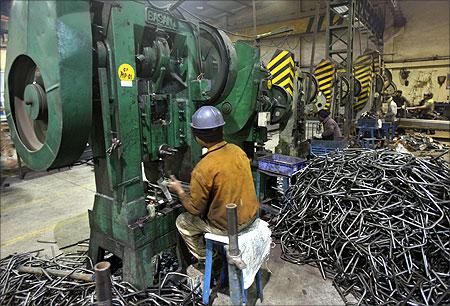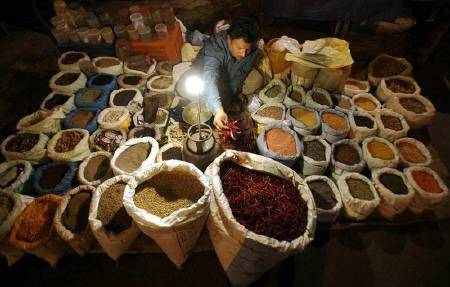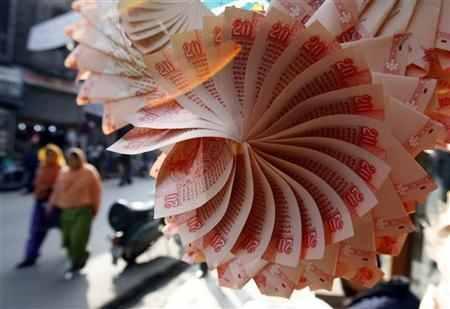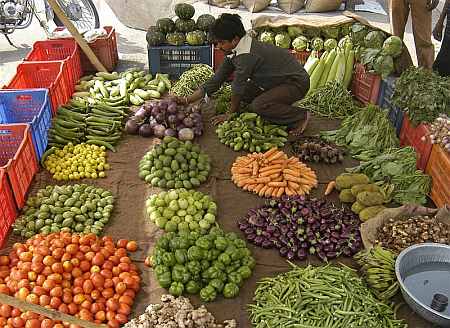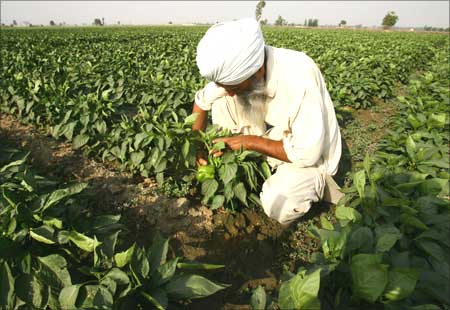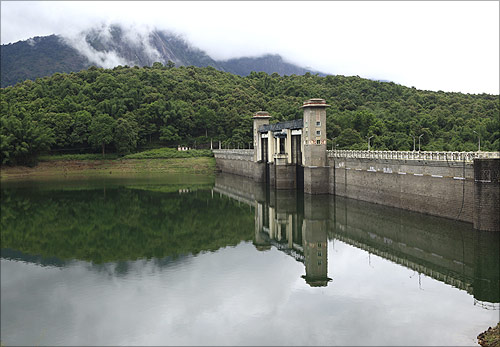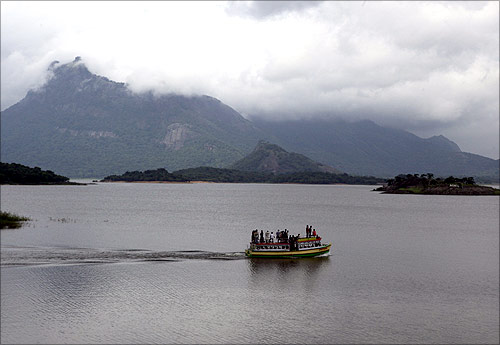 | « Back to article | Print this article |
Bad monsoon? How it will hit key sectors of the economy
Agriculture in India is mainly rain fed. Hence, monsoons and the Rain God attain significance beyond proportions for the Indian farmers.
From offering prayers in order to please the rain god to silly things like watching the tail of the cows (they say if the cow lifts its tail upwards, it signals bumper rains), they do it all!
And why not? 55% of the Indian population is dependent on agriculture for their livelihoods.
Not just agriculture, monsoons are important for the hydro-electric power generation too, which in turn reduces the consumption of diesel and other forms of fuel.
Click NEXT to read more...
Bad monsoon? How it will hit key sectors of the economy
In addition, it also impacts industries like fertilizers, Fast Moving Consumer Goods (FMCG), electronics etc.
The Indian Meteorological Department (IMD) downgraded its monsoon forecast from 99% of the long period average (LPA) in April to 96%, this week.
It is still within the range of average rainfall, but the disclaimer of errors that come with such forecasts using statistical modeling, gives enough reasons to be worried.
Given that India is currently struggling with below par GDP growth rate, low industrial production, high inflation, high fiscal deficit and weak rupee, the role of monsoons has never been as crucial as in this year.
What will be the impact on each of these factors, if the monsoon is any less than normal?
Click NEXT to read more...
Bad monsoon? How it will hit key sectors of the economy
GDP Growth rate: Agriculture contributes to about 15% and the rural economy contributes to about 40% of the GDP in India.
Failed crops or lower yields will bring down the GDP further. When the country is still shaken with the fourth quarter GDP growth rate for the year 2011-2012, of 5.3%, a weak monsoon can push it below five.
An analysis of the last seventeen years rainfall and GDP data, shows that the effect of rainfall on GDP is generally seen with a lag.
For example, in the year 2000-2001, when the rainfall was 12% below normal, the GDP growth rate went down from 5.22% in 2000-2001 to 3.77% in 2001-2002.
Click NEXT to read more...
Bad monsoon? How it will hit key sectors of the economy
While there may be other factors as well for the decline in GDP, on an average, a below normal monsoon has resulted in a decline in the GDP in the next year.
Industrial production: Lower crop yield results in lower income for the farmers.
This directly translates into low disposable income and hence lower rural demand for FMCG products and white goods.
Click NEXT to read more...
Bad monsoon? How it will hit key sectors of the economy
Inflation: India has been grappling with high inflation since the last two years.
Food and fuel comprise of 22% of the Wholesale Price Index. Pulses and Oil seeds are mostly rain fed and will become more expensive, adding to the inflation woes.
In general, the price of all food grains, vegetables and fruits would go up too, as the yield would be lower.
Click NEXT to read more...
Bad monsoon? How it will hit key sectors of the economy
Fiscal Deficit: For the financial year 2011-2012, the fiscal deficit of the government of India stood at 5.9% of GDP.
Out of which, 2.34% (that is 40% of the total deficit) is accounted for by food, fertilizers and fuel subsidies.
The fuel subsidy may go up as the generation of hydro electric power will go down. Also, more diesel will be used for irrigation using ground water.
The food and the fertilizer subsidy may not go up. The food subsidy in India comprises of the government of India buying excess yield from the farmers at a Minimum Support Price (MSP), providing food at highly reduced prices to people below the poverty line and providing subsidy to the Food Corporation of India (FCI) to cover its costs.
Click NEXT to read more...
Bad monsoon? How it will hit key sectors of the economy
The cost of food distributed at subsidized prices will not go up as the government will use food stored in their warehouses.
However, more number of people may avail of this facility and distribution cost may go up marginally.
Similarly, the costs of FCI may not go up due to a poor monsoon. But, if the yield is low, there may not be too much excess crop for the Government to buy. This will result in significant decline in the fiscal deficit.
Click NEXT to read more...
Bad monsoon? How it will hit key sectors of the economy
In the case of fertilizers, after the de-control of fertilizers in the year 2010 (except Urea), the demand for fertilizers has been coming down due to 30 to 50% hike in prices of fertilizers.
If the monsoons are bad, farmers will become more risk averse to deploying more capital into the farms and will avoid expensive fertilizers.
This would hit the fertilizer industry. But the government may not get hit with more farmers seeking subsidies on Urea.
Click NEXT to read more...
Bad monsoon? How it will hit key sectors of the economy
Rupee: India is a large importer of pulses and edible oil seeds. A weak monsoon will add further pressure on the Rupee as import of edible oil and pulses will increase to meet the domestic demand for them.
A large scale farmer on the outskirts of Hyderabad quips "If IMD has predicted that the monsoon is going to be weak, then I am not worried! Then it will definitely rain. IMD has a dubious reputation for forecasting!"
Click NEXT to read more...
Bad monsoon? How it will hit key sectors of the economy
IMD uses a statistical model, which takes in account the historical rainfall patterns along with factors like the surface temperatures, warm water volume and sea level pressures, etc.
This year, IMD has also experimented with a dynamic model, which are recognized as better weather forecasting tool across the world now. In the dynamic model only the current environmental factors are considered for prediction.
Let's keep our fingers crossed and hope for a good monsoon, for a growing, prosperous India!



